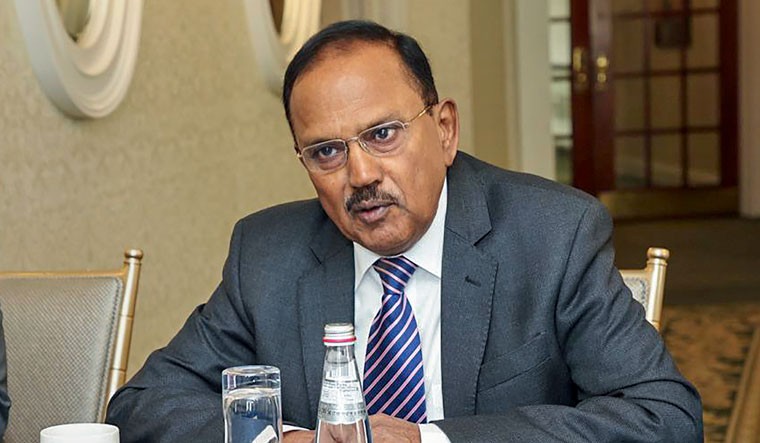National Security Advisor Ajit Kumar Doval’s third term as advisor to Prime Minister Narendra Modi has come with a sharp focus—counter-terrorism, counter radicalisation, guarding the borders and cyber space and a continued attempt to craft a foreign policy driven by national security interests.
The focus is reflected in the choice of spymasters in the National Security Council Secretariat at Sardar Patel Bhawan in the national capital with the elevation of Rajinder Khanna from deputy NSA to additional NSA and appointment of Intelligence Bureau special director T.V. Ravichandran as deputy NSA, making him the second to hold the post next to deputy NSA Pankaj Singh. Vikram Misri, who served as deputy NSA, is now foreign secretary.
While Doval shaped the national security policy for Modi merging national security interests with every policy decision whether it is health, science, telecom, power or communication, Khanna, who is now a more supporting hand of NSA, brought some dynamic changes focussing on technology and innovation in the last few years.
“He is a new ideas man like Doval,” says an officer. “He would walk into a juniors room and talk to them freely. Another thing about him is his phenomenal memory.”
Known as a Pakistan expert who specialised in counter terror operations as the chief of R&AW, the external intelligence agency, Khanna has kept a hawk’s eye on activities by Pakistan and China with a rare combination of scholarship and field experience.
“Doval has been able to identify right kind of officers who have expertise in diverse fields as he expanded the NSCS,” said another security official.
With New Delhi’s renewed focus on threats facing northeast—growing instability in Myanmar and the need for more work to go into the Act East policy—Khanna’s expertise will come in handy to manage China’s growing footprints in the Indo-Pacific.
During his stint as deputy NSA, Khanna saw the creation of one of the big pillars of cyber security architecture in NSCS—the office of the National Cybersecurity Coordinator first held by Dr Gulshan Rai followed by Lt Gen Rajesh Pant, who worked closely with Khanna on critical cyber security issues from thwarting threats, assisting law enforcement agencies in countering cyber attacks and crimes and building a national malware repository to analyse and prepare for future threats. Presently, Lt Gen M.U. Nair is the national cyber security coordinator in the NSCS spearheading efforts to create a national cyber security strategy that is yet to see the light of day.
The bolstering of security on borders with Pakistan and China and integrating it with a civilian security approach by focussing on border villages and infrastructure is being handled by domain expert Pankaj Singh, former chief of BSF, who handles all internal security matters in NSCS. Now, Ravichandran, a 1990 batch Tamil Nadu cadre officer, brings with him the domain knowledge of handling LTTE and Islamic terror threats in the South.
Doval himself has helmed the security brass with achievements under his sleeve like Balakot strike in PoK, containing the naxal threat, Chinese PLA withdrawal from finger heights at Pangong, ban on Chinese apps, engagements with Russia and Middle East and faster deployments on borders.
With the domain experts at the helm, Doval’s next challenge in what he describes as the fourth generation war might get a shot in the arm as the best brains come together to counter attempts to subvert, divide and manipulate civil society turning information warfare into a key aspect of national security.



